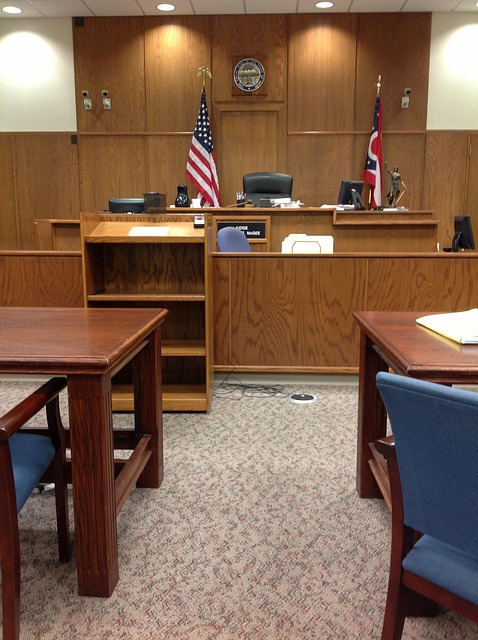Regulatory agencies like the RFRA enforce RF standards, handle investigations, and govern appeals for criminal sentence decisions related to non-compliance. Understanding their jurisdiction and rights of appeal is vital for individuals and businesses facing RF-related legal issues, as skilled legal representation can lead to favorable outcomes, including charge dismissals.
“RF Regulatory Agency investigations hold significant weight in ensuring compliance with radio frequency (RF) standards. This article delves into the intricate details of these inquiries, focusing on key aspects like jurisdiction, investigative practices, and appeal processes. Understanding these elements is crucial, especially when facing potential penalties. We explore how individuals can navigate the system, including their rights during investigations and strategies for appealing initial findings, akin to reviewing a criminal sentence decision. By grasping these concepts, one can better protect their interests in RF regulatory matters.”
- Understanding RF Regulatory Agency Jurisdiction
- Investigatory Powers and Legal Framework
- Appealing an Initial Finding: Rights and Process
- Evidence Review and Due Process Considerations
- Navigating Successful Appeal Strategies
Understanding RF Regulatory Agency Jurisdiction

RF Regulatory agencies possess jurisdiction over a wide range of radio frequency (RF) related activities, ensuring compliance with safety and performance standards. Their role is pivotal in protecting public health and welfare by regulating the use of RF emissions, from low-power devices like wireless chargers to high-frequency applications in telecommunications. This jurisdiction extends to both corporate and individual clients, encompassing various sectors such as manufacturing, broadcasting, and mobile communications.
Understanding these regulatory bodies’ powers is crucial, especially for those facing potential or existing investigations. While appealing a criminal sentence decision can be a complex process, mastering the agency’s guidelines and procedures may enhance the chances of achieving a favorable outcome, including the complete dismissal of all charges. Through skilled legal representation, individuals and businesses can navigate these challenges, ensuring they receive fair treatment and just verdicts in RF-related legal matters.
Investigatory Powers and Legal Framework

The RF Regulatory Agency (RFRA) possesses significant investigatory powers to ensure compliance with radio frequency (RF) standards and regulations. These powers are underpinned by a robust legal framework, allowing them to conduct thorough inquiries into suspected non-compliance. The agency’s investigative capabilities include access to relevant documents, inspections of facilities, and the collection of evidence related to RF emissions.
While individuals or businesses may face criminal charges in certain cases, they also have the right to appeal a criminal sentence decision if they believe an error was made. Achieving extraordinary results in these appeals requires a comprehensive understanding of not only the specific RF regulations but also the broader legal landscape. A winning challenging defense verdict often hinges on meticulous evidence analysis and strategic legal argumentation within the respective business context.
Appealing an Initial Finding: Rights and Process

When facing RF (Radio Frequency) Regulatory Agency investigations, individuals or entities have the right to appeal an initial finding, especially if they believe there was a misunderstanding or misinterpretation of facts during the inquiry. The appealing process is designed to ensure fairness and provide a chance to present new evidence or arguments that might alter the original decision. This procedure follows a structured format, allowing parties involved to navigate all stages of the investigative and enforcement process with due diligence.
Understanding your rights and adhering to the stipulated timeline is crucial when appealing a RF Regulatory Agency decision. A comprehensive review of the case, including any available legal precedents or regulatory guidelines, forms the backbone of the appeal strategy. The goal is often to secure a complete dismissal of all charges, particularly in white-collar defense cases where technicalities and nuances can significantly impact the outcome.
Evidence Review and Due Process Considerations

When RF Regulatory Agency (RFRA) investigations lead to criminal charges, understanding the evidence review process is paramount for corporate and individual clients alike. The agency must present a robust and admissible case, ensuring every piece of evidence contributes to a fair and unbiased decision. However, this doesn’t diminish the rights of those under scrutiny; due process considerations come into play, allowing for thorough challenges to the evidence and procedures employed.
Appealing a criminal sentence decision within the context of an RFRA investigation involves a delicate balance. The onus is on the defendant or their legal counsel to demonstrate procedural errors, insufficient evidence, or any other factors that may have influenced the outcome unfairly. This process demands meticulous attention to detail, as even subtle issues could lead to a complete dismissal of all charges or winning challenging defense verdicts.
Navigating Successful Appeal Strategies

Navigating successful appeal strategies is an intricate process that requires a deep understanding of legal intricacies and procedural rules. When considering an appeal, especially in the context of appealing a criminal sentence decision, it’s crucial to assess the strengths and weaknesses of the case. This involves thoroughly reviewing the original trial record, identifying potential errors or omissions, and crafting compelling arguments to present before the appellate court.
For individuals facing charges for white-collar and economic crimes, employing a robust defense strategy is paramount. A skilled white-collar defense attorney can guide clients through the appeals process, ensuring their rights are protected and advocating for the complete dismissal of all charges if warranted. This may include challenging evidence, questioning witness testimonies, and raising legal arguments that could lead to a significant outcome, such as a reversal of the conviction or a reduced sentence.
RF Regulatory Agency Investigations offer a critical process ensuring compliance with radio frequency (RF) standards. By understanding the jurisdiction, investigative powers, and legal framework, individuals can better navigate potential issues. The right to appeal an initial finding is essential, providing a fair process for those facing accusations. Strategies for successful appeals focus on thorough evidence review, due process considerations, and a deep understanding of rights—all vital steps in protecting one’s interests within this complex regulatory landscape. In appealing a criminal sentence decision related to RF matters, knowing your rights and following established processes are key to achieving a favorable outcome.






